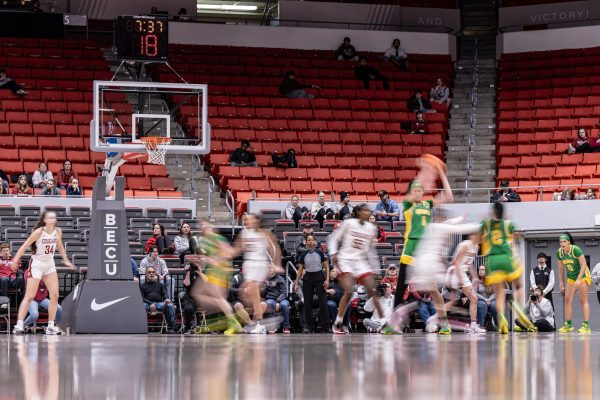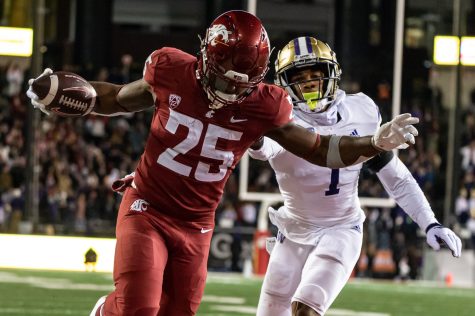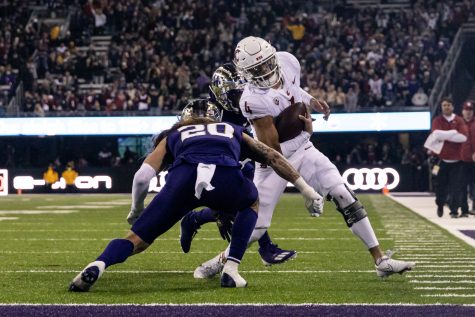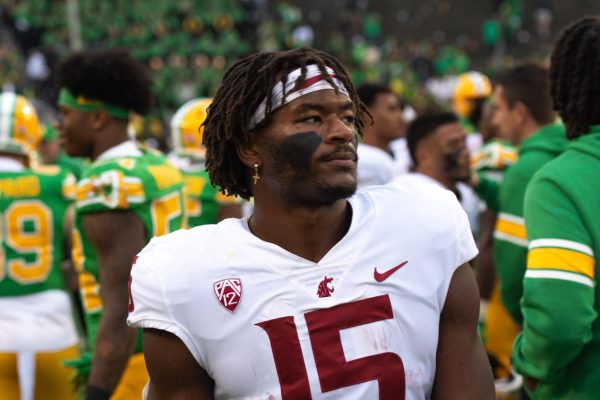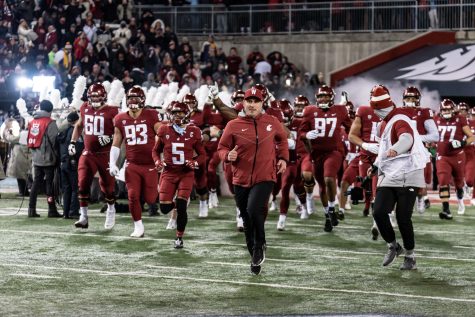A tale of two states: It was the best or worst of times in Wash. House.
February 12, 2015
The year was 1991 when former senator Bob Morton went to Olympia with the goal of dividing Washington into two states.
He left with the satisfaction of knowing he had begun a conversation that could very well transcend or even transform borders—if all went according to plan.
Bob Morton retired from the Senate just two years ago, and already a new generation of politicians pays homage to his ideas: Representatives Shea, McCaslin, Taylor, Haler, Klippert, and Schmick are the faces behind House Bill 1818, a proposition to once more create a delegation tasked with splitting the state.
House Bill 1818 inspires images of a young boy running away from home because he’s fed up with his parents, bindle over shoulder and all. The very idea sounds comical at first thought, but digging deeper reveals complex issues of representation, welfare spending, and governance.
Both sides have their truths and half-truths to form a convincing argument. Washington Republicans, for example, contend that state taxpayer money is disproportionately distributed toward the west side of the state—a sort of welfare kingdom.
The Office of Financial Management has compiled data from 2008, however, which pointed to the exact opposite: Areas in the west, such as King County, account for 42 percent of total generated tax revenues, but receive only 62 cents on the dollar in benefits.
Ferry County, on the other hand, receives more than triple their investment at a whopping $3.16 per dollar paid into the system. Of the six districts that are pay in more than they receive, only one lies east of the Cascades.
It’s seems from these figures then that it is Eastern Washington at peril if its big brother in the West took leave. But there should be and is more to state leadership and decision making than finances, so the question remains: Should Washington be divided?
In the hearts and minds of the people, it already is. While constituents in the East bemoan their legislators over the nuisance and threat to their livelihoods posed by roving wolves, Starbucks-sipping techies in Seattle sit in comfortable offices espousing the importance of protecting an endangered species.
Representative Joel Kretz’s district of Wauconda is home to eleven of Washington’s 14 wolf packs, which causes great distress to a constituency largely composed of cattle ranchers and sheep herders.
Rep. Kretz recently proposed a bill to relocate some of these wolves to other parts of the state and the challenges such legislation faces.
A previous bill by Kertz sought to place those wolves in the districts of legislators who oppose any controls on the wild animals, noting “Most of the support in the state for wolves…comes from areas where there are no wolves.”
Unsurprisingly, it was shot down.
When it comes to this sort of state decision-making, representation is an oft-cited catalyst of discussions to split the state. How could legislators who have lived in Seattle their whole lives sympathize with the issues faced every day by those east of the Cascades?
Political leadership in this state has been frequently polarized and disturbingly unrepresentative. Senator Rodney Tom, who represents areas of eastern King County and was one of two Democrats to join the last biennium’s coalition, recognized this issue.
Time Magazine quoted him as saying, “If you look at what had transpired when the Senate Democrats were running the show, 60-70 percent of the committee chairs were out of Seattle. How representative is that?”
Indeed, it appears the voices of those standing up for Eastern Washington often fall on deaf ears in Olympia.
Those living east of the mountains have reason to be weary of the West’s power; constituents on the other side of the pass hold in inordinate amount of power. As TIME noted, Governor Jay Inslee only won eight of 39 counties in his electoral race—all located within 100 miles of Seattle.
It is not so absurd then to think there is a bigger picture behind current House Bill 1818. While this legislation has no real chance of passing, it’s more likely that its sponsors intended it that way.
Representatives Shea, McCaslin, Taylor, Haler, Klippert, and Schmick know where their bread is buttered; the East’s agricultural economy could not thrive without the industrialized West. But their solution to a polarized state is not truly to split its borders, rather, they seek to split the animosity and begin a discussion of political power.
House Bill 1818 isn’t a piece of legislation that Washington can take at face value. It is the underlying message to which we must listen: What’s the worst that could happen?









